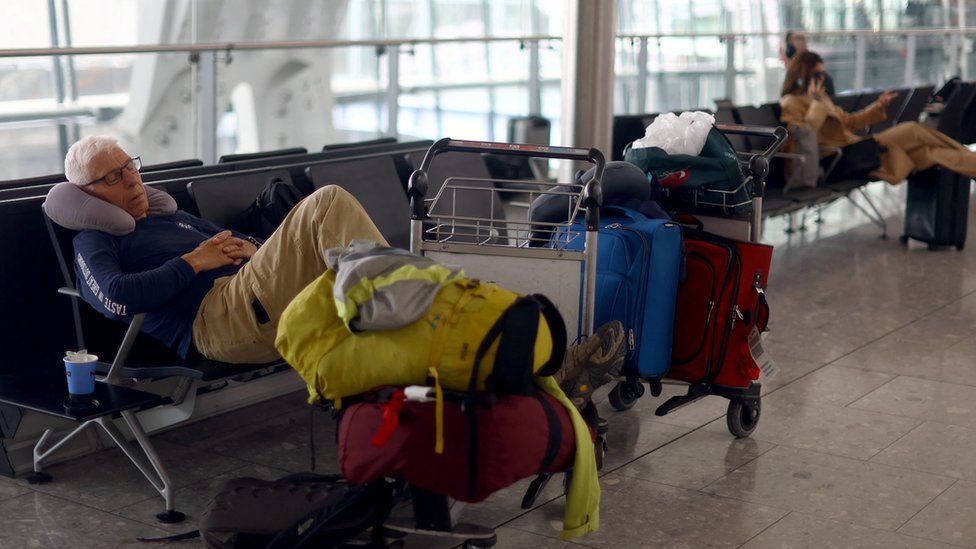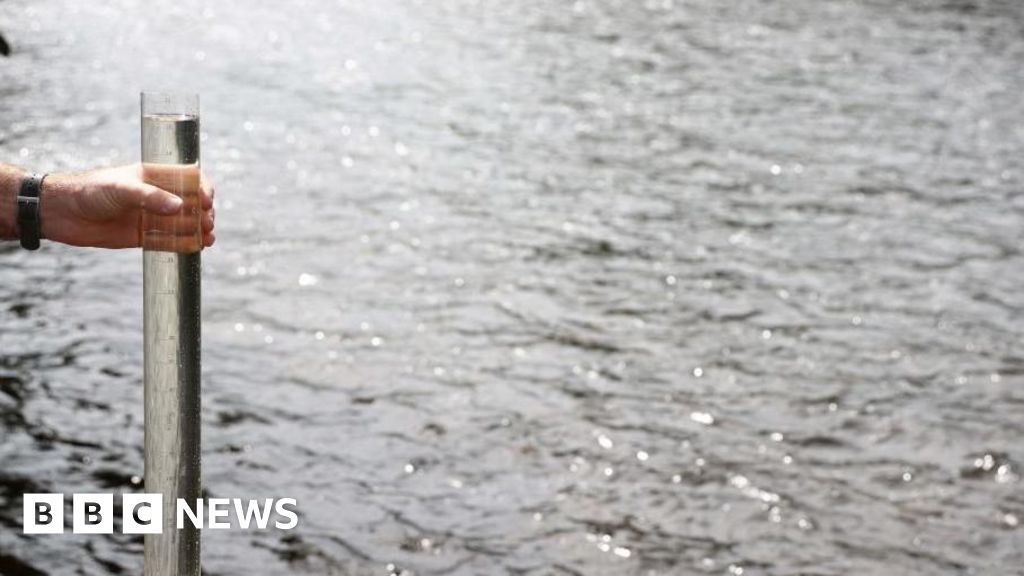ARTICLE AD BOX
 Image source, Reuters
Image source, Reuters
Heathrow says passenger numbers were at 79% of pre-coronavirus levels last month
Heathrow airport's passenger numbers continue to rise as it recovers from the coronavirus pandemic.
Some 5.3m people travelled through the west London hub in May - an increase of 1.1m compared to March.
It represents nearly an eight-fold increase on last year when the UK's Covid-19 travel restrictions were in place.
Terminal 4, which was closed due to the virus crisis, reopens on Tuesday ahead of the summer peak.
Traditionally, the terminal has been home to many Middle Eastern operators and Russian carrier Aeroflot - whose services are suspended because of sanctions imposed following Russia's invasion of Ukraine.
The first airline to resume services from Terminal 4 will be Qatar Airways, followed by around 30 more including Saudi Arabia Airlines, Etihad Airways and Korean Air.
Image source, Reuters
Image caption,Heathrow Airport said it has been working with partners to ensure sufficient levels of resource are in place to cope with the large number of passengers
Heathrow is one of several UK airports which have seen long queues in recent weeks as the aviation sector struggles to cope with the spike in demand for travel amid a staffing shortage.
A rise in coronavirus-related staff absences in the spring, combined with difficulties finding and passing security checks for new recruits, means the aviation sector has struggled to cope with the number of people flying in recent weeks.
Chief executive John Holland-Kaye praised Heathrow staff after the Jubilee half-term.
He added: "We continue to make good progress with our plans to ramp up capacity.
"We are working closely with airlines and government to keep supply and demand in balance as we grow, so that passengers can travel through Heathrow this summer with confidence."
'Incentivises investment'
The airport claimed "recent criticism of service levels across the sector" highlight its proposal to increase airlines' fees for using the airport up to 2027 is "the right one for consumers".
The Civil Aviation Authority (CAA) is expected to set a new cap on the airport's charges this summer - airlines are strongly opposed to an increase in fees.
Mr Holland-Kaye said: "We now need a regulatory settlement from the CAA that protects service and resilience levels, incentivises investment and maintains affordable private financing.
"Failure to invest risks degrading passenger experience at a time when it has never been more important for operations to ramp up smoothly."
Follow BBC London on Facebook, Twitter and Instagram. Send your story ideas to hellobbclondon@bbc.co.uk
Related Internet Links
The BBC is not responsible for the content of external sites.

 2 years ago
74
2 years ago
74








 English (US) ·
English (US) ·